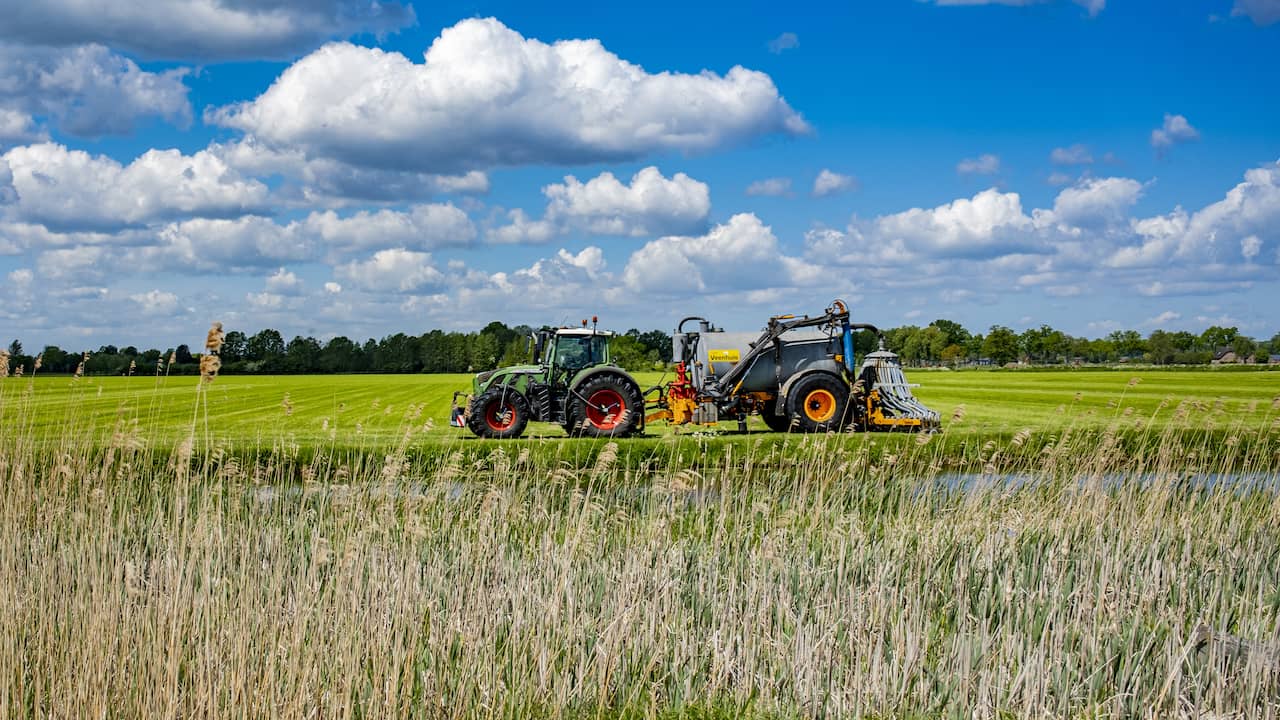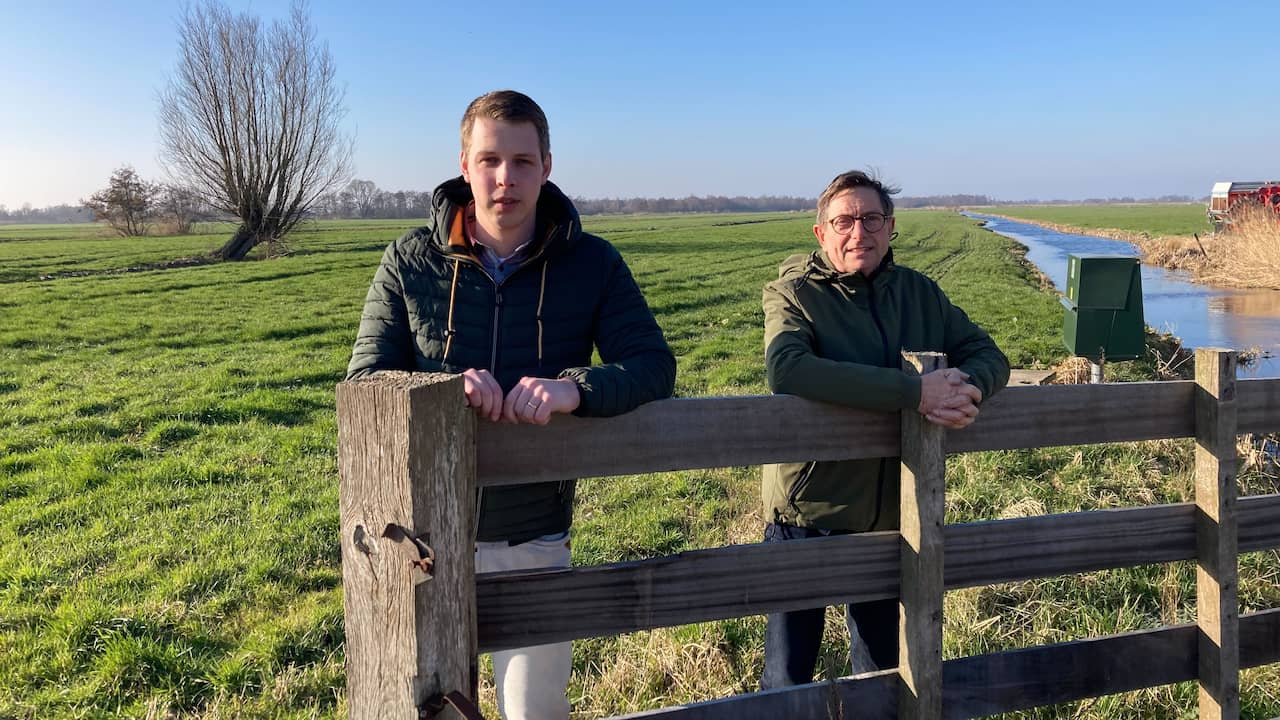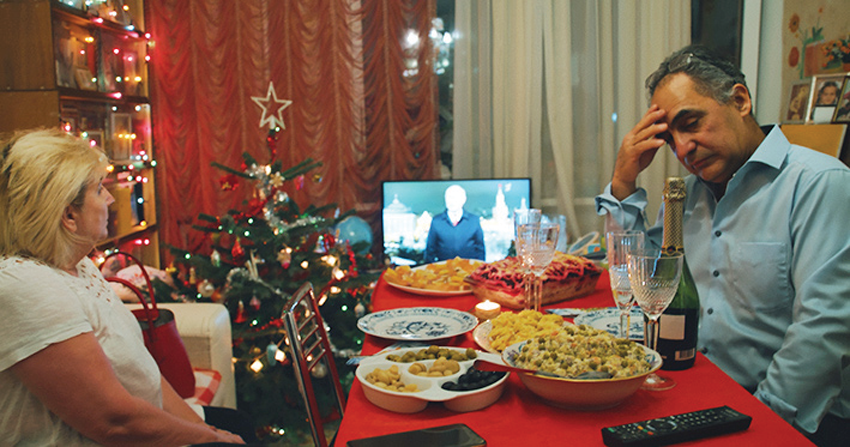The first South Holland farmers were told in mid-February that they must be gone by 2030. It caused a lot of fuss, also because the province could not say why and what price farmers would receive for their farm. Almost three weeks later, several farmers are in uncertainty. “We didn’t expect them to try to push this through.”
There is a pile of cards on a cupboard in the farm of the Vergeer family in the village of De Meije. These are statements of support that should encourage the farmer’s family.
The Vergeer family is one of the twelve farmers who have been told that nitrogen emissions in the Meijegralands must be zero by 2030.
Part of those twelve farms is located entirely in Natura 2000 area Nieuwkoopse Plassen and De Haeck, as the area is fully called. Some farmers only have land in the area.
‘A shock went through the room’
The Vergeer farm (one hundred cows and 48 hectares of land) is located entirely in the Natura 2000 area.
“There was a shock through the room. We have known for some time that there is pressure in this area, but we did not expect that they would try to push it through so quickly,” says Richard Vergeer about February 13, the day on which he message was heard.
At the age of thirty, he is only at the beginning of his agricultural career. He was supposed to take over his father’s farm in a few years. “But that chance is actually zero now,” says father Bert Vergeer (58) concerned.
Province seemed ill-prepared for questions
The meeting in question also seems to have been hastily organized by the province. The twelve farmers were informed by e-mail a few days in advance. “But they didn’t have all the email addresses. So we were asked if we could inform each other by email.”
When the farmers in the Meijegraslanden were told that their business must stop from 2030, it caused a lot of commotion in the room. “We asked questions such as what the arguments are for this and what price we get for it. But we didn’t get an answer. ‘We’re going to take that with us,’ said the province,” says Richard Vergeer.
What can we do now? Don’t know.
The day after, a meeting with more than 250 farmers from the wider area was already planned. Because of all the commotion, the province decided to cancel it at the last minute. But the province failed to inform all farmers in time. As a result, on the evening of February 14, a lot of farmers stood in front of a closed door.
‘They only apologized for the process’
Zuid-Holland apologized afterwards for “how communication went throughout the entire process”. A spokesperson for the province cannot say whether that also means that farmers can stay in the Meijegraslanden. “Deputy Stolk (CDA, ed.) has said that the answer to that question is neither yes nor no.”
“They have made excuses for the process, but not for the content. That is the big misunderstanding they allow to exist,” says Sjaak Voorend. He has an agricultural business in De Meije, but it falls just outside the boundaries of the Natura 2000 area. He assists the farmers in the area.
“Although the province says it is marking time and will still look at it, the fumigation has started. That is the worst thing about this process,” continues Voorend. “The area has now been marked with a significant depreciation. Who can you sell it to now?”
Faced with the ‘fumigation’, the spokesman for South Holland says that the province “does not have that in mind”. “We are sorting out the questions we have received. And with that we come back to these people.”
 1:40
1:40‘This doesn’t deserve the beauty prize’
The spokesperson does not want to talk about the fact that these are completely logical questions and the question why the province did not investigate this first before informing the farmers. He hides behind the summary message in which the province has communicated that “this does not deserve the beauty prize”. It is also not clear when South Holland will have an answer to farmers’ questions.
Apart from a letter of apology about the process, Bert and Richard Vergeer have heard nothing from the province. They have the feeling that South Holland is letting them dangle. “Time and time again, the government shows that it does not treat citizens properly. And then they find it strange that confidence in politics is waning,” says Richard.
He doesn’t know what his future looks like now. “I would like to remain a farmer and preferably here, but what can we do now? I don’t know. We are trapped.”
“I am the third generation here and the history of the family lies elsewhere in De Meije,” says Bert. “The intention was to train the next generation. It hurts that that probably won’t work, yes.”

